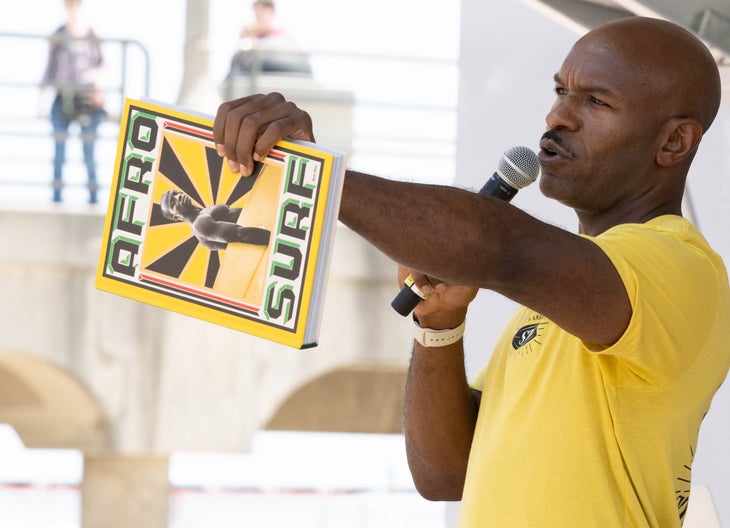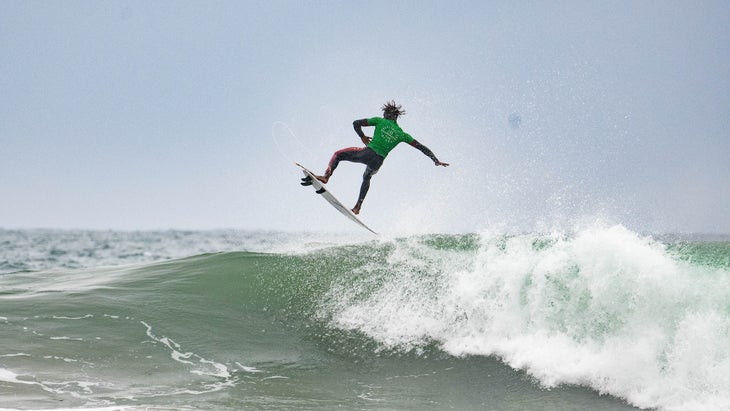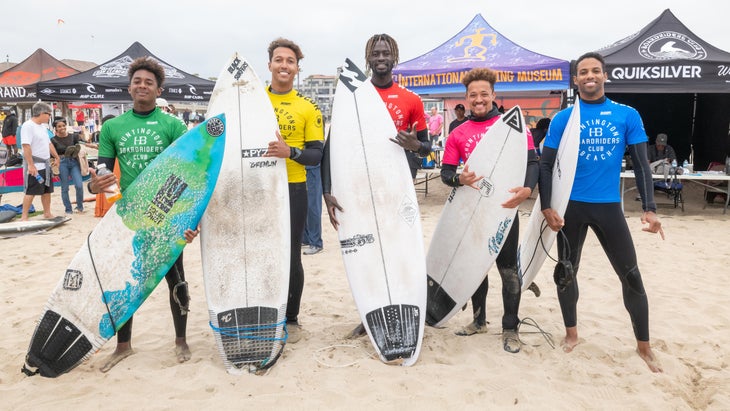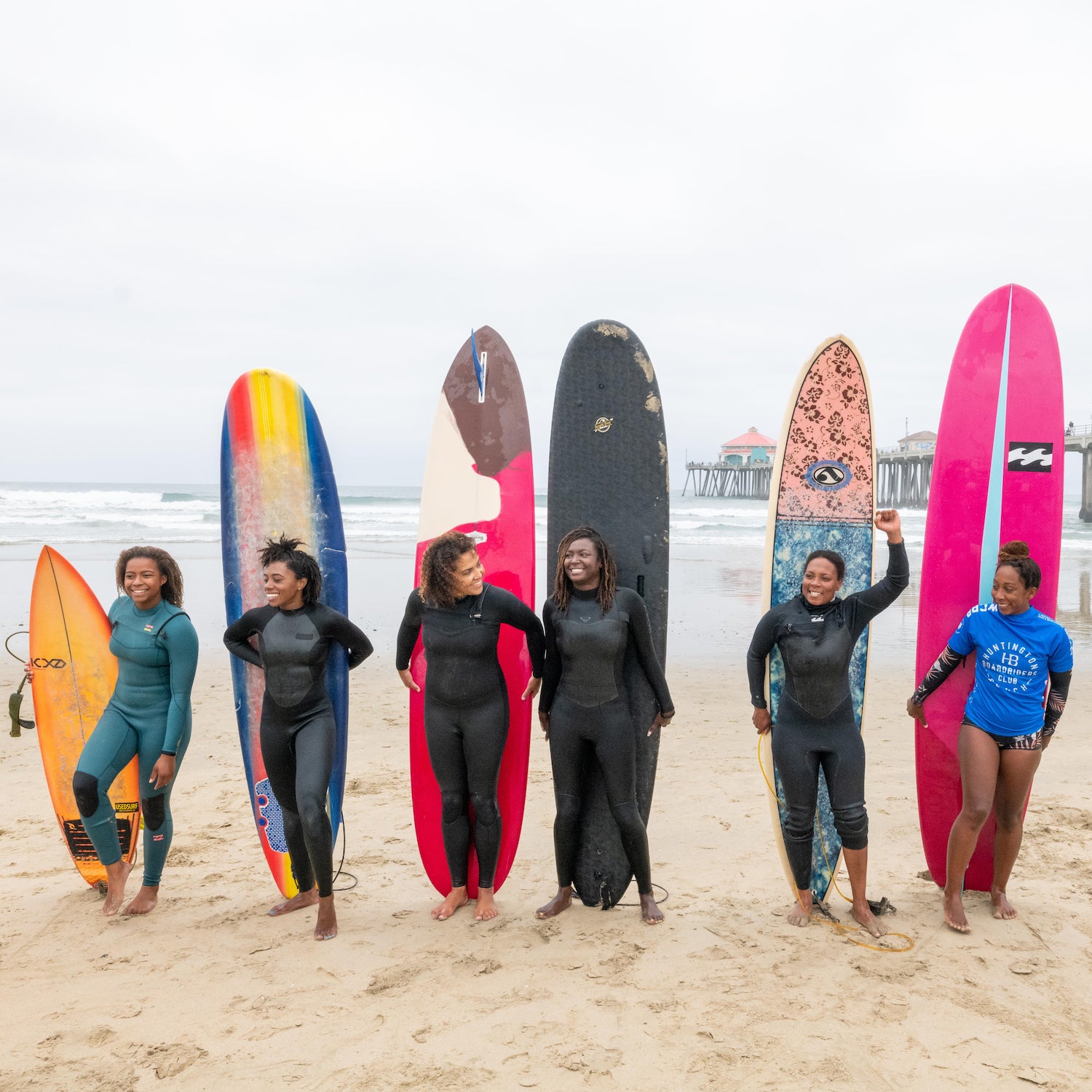Nathan Fluellen has always felt at home in the water. Born and raised in Chicago’s south suburbs, he started swimming in Lake Michigan when he was ten months old. But while he was interested in surfing from a young age, he didn’t begin until a few years ago.
“I didn’t see anybody that looked like me surfing,” Fluellen, 41, told ���ϳԹ���. “I saw that as something that white boys do.”

Fluellen began taking surfing lessons in 2017 after a transformative trip to Durban, South Africa, for his web series, . There, he rode waves with Zulu boys who reminded him of himself as a kid. “I was living vicariously through them, thinking about if I had gotten the opportunity to be ten years old and surf,” he says.
Last weekend, Fluellen hosted what he believes to be the largest-ever gathering of Black surfers. An estimated 500 people attended at Southern California’s Huntington Beach on Saturday, which was billed as a safe space for Black surfers to show off their skills, take free surfing lessons, and celebrate community leaders. The inaugural event’s name pays homage to two iconic images of Black music legends: “,” a 1958 photograph of 57 jazz musicians by Art Kane, and “,” a 1998 photograph of 177 hip-hop artists and producers by Gordon Parks.
Fluellen was one of over 100 people who posed for a similar group photo Saturday.

“It goes back to representation,” say Fluellen. “I wanted us to be in that zeitgeist of historical events and be in that same conversation of pioneers of Black surfing.”
Tony Corley, who founded the in 1975, and , the first Black woman professional surfer, were both recognized at the event. Kayiita Johnson, the creator of the Instagram community, was honored for his work to make the sport more inclusive.

Fluellen says he hopes A Great Day in the Stoke will be an annual event that inspires more Black people to catch waves. “There’s always been a systemic effort to restrict Black people from these spaces,” he says. “But the ocean is for everybody to enjoy.”


